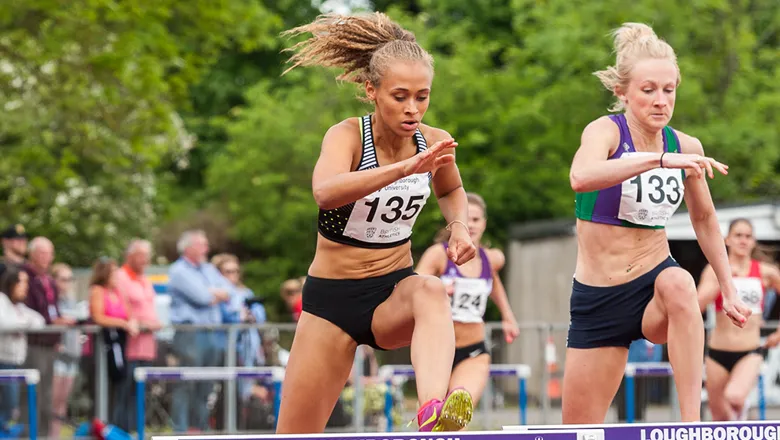25 November 2019
Connecting Science and Performance: Fuelling for Athletes
On Wednesday 13 November, King’s joined forces with Herne Hill Harriers (HHH) to host an evening of lectures, Q and A panel and networking on the topic of nutrition in sport.

The evening was attended by 300 interested people including athletes, coaches and parents. The event highlighted a subject matter that has become extremely topical in recent weeks with the ‘breaking’ of the 2-hour marathon threshold and the ‘Mary Cain story’.
Dr Oliver Witard, Senior Lecturer in Exercise Metabolism & Nutrition at King’s, who co-authored the International Association of Athletics Federation’s ‘Consensus Statement 2019: Nutrition for Athletics’, gave a brilliant, scientifically underpinned insight to the key components of optimal fuelling for endurance events, pre and during competition. He addressed the potential benefits of mixing glucose-fructose sugars to increase gut absorption of carbohydrate, and, capitalising on contemporary research, the benefits of ‘training the gut’.
Dr Jessica Piasecki, Lecturer in Exercise Physiology at Nottingham Trent University and international athlete, provided an academic insight to Relative energy deficiency-Sport (RED-S), drawing heavily on her own experiences as an athlete, with a scientific underpinning. Her lecture was a tour de force beginning with some nutritional guidance, but majoring on the definition, symptoms and the potential implications of RED-S. For women, the centrality of a regular menstrual cycle to bone health was emphasised, together with the suppressant impact of oral contraceptives on oestrogen levels. Jess’s own history of stress fractures since 2008 including spinal damage, was a harrowing reminder of the consequences of under fuelling. Furthermore, it was emphasised that the potentially damaging consequences of under-fuelling can and should be avoided by ensuring the next generation of athletes/coaches and parents all have a good nutritional understanding on how to maintain sufficient energy available for their training.
Oliver and Jessica were then joined by Dr Nicky Keay, a Sports and Dance Endocrinologist, and Bill Foster, middle- and long-distance coach to the Loughborough University women’s squad and former international athlete for the Q and A session where the audience asked questions ranging from ‘is it practical to be a vegan athlete’ to ‘do male coaches understand the needs of female athletes’?
The stimulating Q and A session witnessed no shortage of further discussion, with Dr Keay bringing some very insightful clinical perspectives, whilst Bill Foster shared with the audience practical issues he had addressed as a long-standing and successful coach.
Keith Newton, President and Coaching Assistant, Herne Hill Harriers and Faculty Operating Officer, Life Sciences and Medicine, King's, reflected that "the success of the event vastly exceeded my expectations, and it will hopefully be the first of many. Our speakers and panel members were brilliant, and the audience was superb. It is critical that we can discuss issues such as the importance of the menstrual cycle to bone health in open fora such as these, ensuring these subjects are no longer considered taboo. It suggests to me there is a real demand for events of this type, which can be a key component of our duty of care to our athletes and the education of coaches."
In 2018, King’s launched a new undergraduate programme in Sports and Exercise Medical Sciences which offers expert teaching in physiology, biochemistry, cell biology, and psychology – unlocking the science that underpins human performance and injury/disease prevention. For further information about this course, visit our online prospectus.

